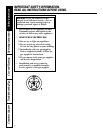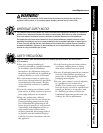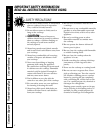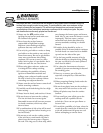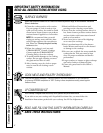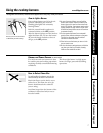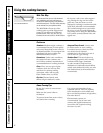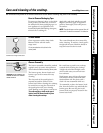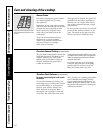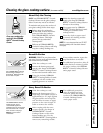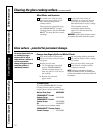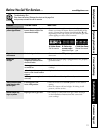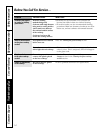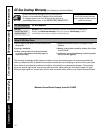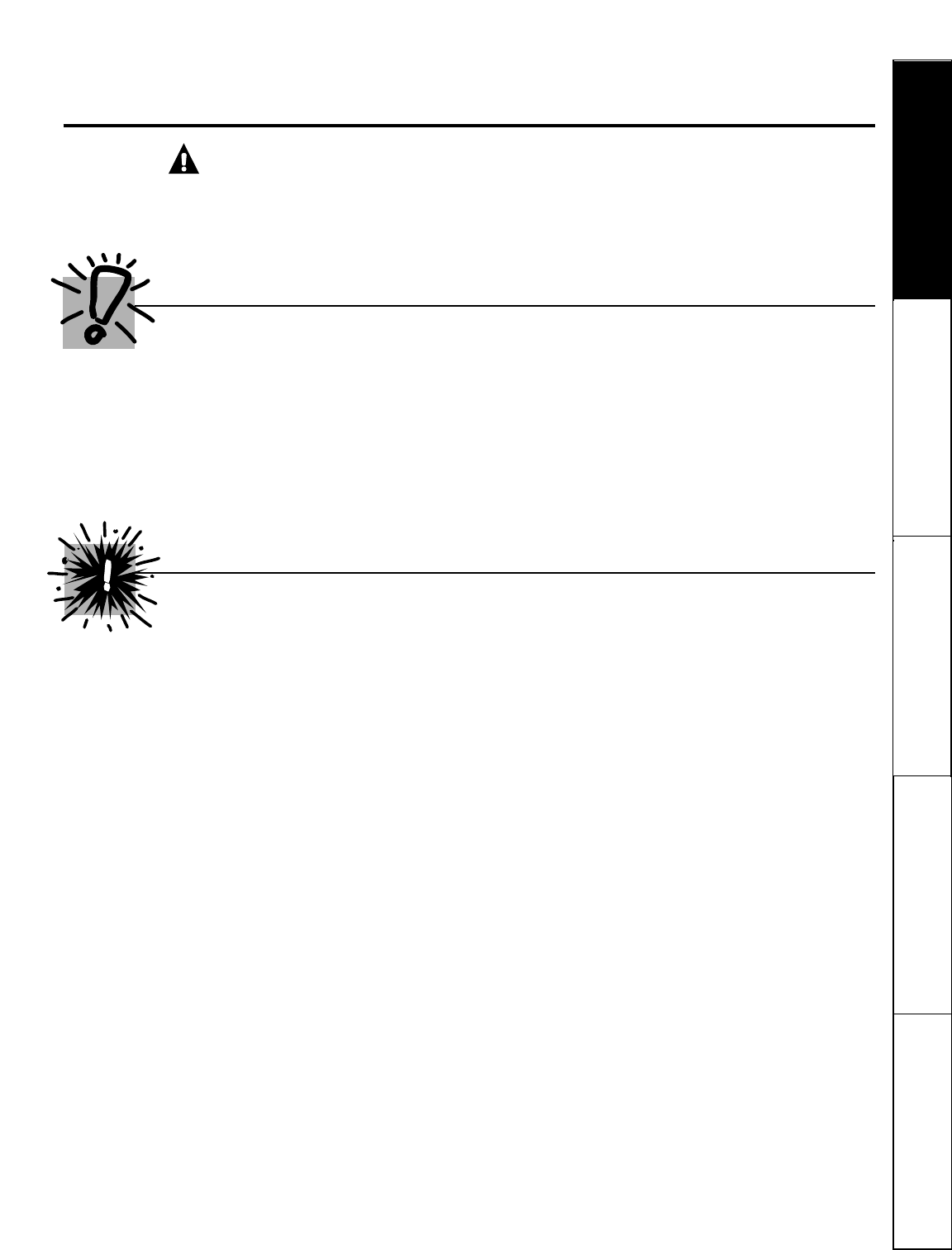
3
www.GEAppliances.com
WARNING!
For your safety, the information in this manual must be followed to minimize the risk of fire or
explosion, electric shock, or to prevent property damage, personal injury, or loss of life.
Have the installer show you the location of the cooktop gas shut-off valve and how to shut it
off if necessary.
■ Have your cooktop installed and
properly grounded by a qualified installer,
in accordance with the Installation
Instructions. Any adjustment and service
should be performed only by qualified gas
cooktop installers or service technicians.
■ Do not attempt to repair or replace any
part of your cooktop unless it is specifically
recommended in this manual. All other
service should be referred to a qualified
technician.
■ Locate the cooktop out of kitchen traffic
path and out of drafty locations to prevent
pilot outage and poor air circulation.
■ Plug your cooktop into a 120-volt
grounded outlet only. Do not remove the
round grounding prong from the plug.
If in doubt about the grounding of the
home electrical system, it is your personal
responsibility and obligation to have an
ungrounded outlet replaced with a
properly grounded, three-prong outlet in
accordance with the National Electrical
Code. Do not use an extension cord with
this appliance.
■ Let the burner grates and other surfaces
cool before touching them or leaving
them where children can reach them.
■ Be sure all packaging materials are removed
from the cooktop before operating it to
prevent fire or smoke damage should the
packaging material ignite.
■ Be sure your cooktop is correctly adjusted
by a qualified service technician or
installer. This counter unit, as shipped
from the factory, can only be operated with
natural gas. Do not try to operate it with
LP (bottled) gas unless you follow the
Installation Instructions packed with your
cooktop. See LP Gas Adjustments.
SAFETY PRECAUTIONS
IMPORTANT SAFETY NOTICE
The California Safe Drinking Water and Toxic Enforcement Act requires the Governor of California to
publish a list of substances known to the state to cause cancer, birth defects or other reproductive
harm, and requires businesses to warn customers of potential exposure to such substances.
Gas appliances can cause minor exposure to four of these substances, namely benzene, carbon
monoxide, formaldehyde and soot, caused primarily by the incomplete combustion of natural gas or
LP fuels. Properly adjusted burners, indicated by a bluish rather than a yellow flame, will minimize
incomplete combustion. Exposure to these substances can be minimized by venting with an open
window or using a ventilation fan or hood.
Safety Instructions Operating Instructions Care and Cleaning Troubleshooting Tips
Consumer Support




